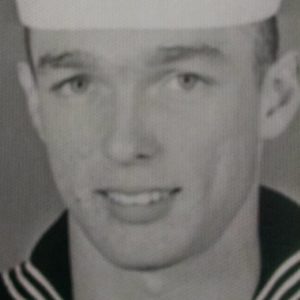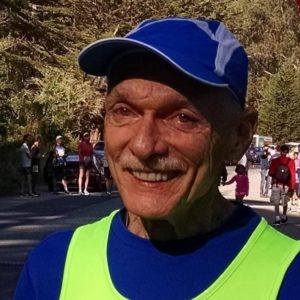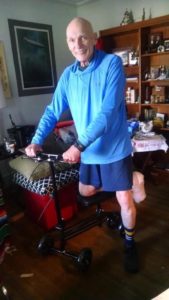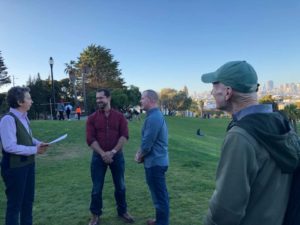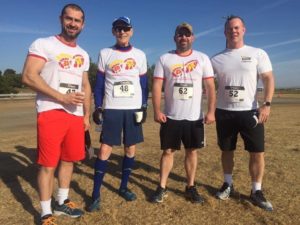(1941-2020)
Leon was a dear friend. He was born in Baltimore in 1941. He was a musician in the US Navy from 1959-1963. Somewhere along the way, probably at a gay dive bar in Baltimore in the 1960s (actually, almost definitely at a gay dive bar in Baltimore), he met my uncle, John Yantis, and they became life-long friends. On Thursday, Leon died in the San Francisco house he shared with my uncle for decades. Leon is the most memorable of characters. He was always the tallest guy in the room, 6’2” in flats and 6’7” in heels, not that I ever saw that, but I can imagine. He was the funniest person in the room too, and sometimes he was the drunkest, or the highest, until he decided to do something different. That’s the thing about Leon—he just decided what to do and then he did it, always without help. When he retired from the GSA in 2003, he made a lot of decisions. He decided not to smoke, not to drink, to be organic, then vegetarian, then vegan, then not. He decided to become a long-distance runner in his late 60s, so for the last many years of his life he collected ribbons and medals and rows and rows of running shoes. Tony and I ran with him once, a 5K for charity, and he lapped us. Bay to Breakers was his favorite.
Leon decided to live life to the fullest after retirement for a reason—you see, COVID-19 was not his first pandemic. There is one other current pandemic, HIV/AIDS, and it has killed 32 million people so far. Leon and John lived in San Francisco in 1981 at the beginning of that pandemic and it was as personal and cruel as it could have been, killing over the course of years nearly everyone they knew. Imagine that. Leon was never infected, so his long life was a gift in many ways, but it meant he lived with death for the better part of 20 years—not just through personal loss, but as a caregiver who helped his friends transition from living to dying, one after another, including my uncle who Leon cared for until the end. These are not easy things to do. So after my uncle died and Leon retired, he just decided. He decided to do what he wanted when he wanted and that’s the precise extent of what he did. I’ve never met another human being who got to live so many years doing only what he wanted, to an annoying fault.
COVID-19 was cruel to Leon in its own way, the same way it is cruel to so many older folks. It left him at home alone out of caution. It should feel indescribably tragic that he died alone in his house, cause not known at this time, but that’s actually exactly what he wanted. Leon didn’t fear death; he talked about death with the same casualness someone else might talk about a hangnail. Leon feared having to be taken care of, because he saw what that looked like. It’s just that more lunches and more hugs these last months would have been better. And less Trump. He would want nothing more than to see the approaching blue wave.
I think it was Leon and my uncle, and that house on Capital Avenue above Ocean Avenue, that purple house with the rainbow flag, and the whole of San Francisco really, maybe more Castro Street specifically, and Folsom and Market Street on Gay Pride, and the hilarious stories of Leon and my uncle and their friends staying up all night in the 70s and then trying to maneuver the flower shop’s van to the Flower Mart for the good picks on an early Sunday morning – yes, these things that gave me a sense of who I am and where I came from, in part. I learned from Leon that it is out of our commonality and our shared fight for equal rights that we gay men and women and others in our community have an expansive definition of family. Leon was family, much loved family. But what he’d really want you to know is this … that on nearly every single one of the thousands of days he spent caring for his lush, postage-stamp-sized garden he could smell the Pacific Ocean, even hear the roar of the waves on some days. Indeed, Leon left his house open to let the fog roll in, like every true San Franciscan.
